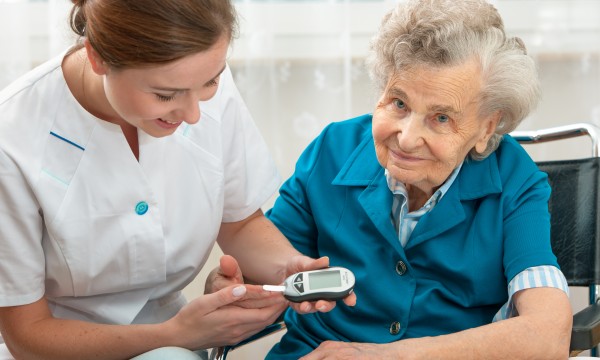Diabetes can present itself in many ways, and it's not always the same for different people. If you suspect you might have diabetes, here's a guide to taking that suspicion to your doctor:
- Browse Categories
- All Tips
-
Home & Garden
- All
- Appliances
- Bathroom
- Cleaning
- Crafts
- Decorating
- Electrical
- Flooring
- Furniture
- Garage Door
- Gardening
- Green Living
- Heating
- Home Alarm Systems
- Home Maintenance
- Home Remedies
- Home Security
- Home Staging
- House Sitting
- Junk Removal
- Kitchen
- Lawn Care
- Lock Systems
- Moving
- Outdoor Living
- Pest Control
- Plumbing
- Renovation
- Roofing
- Snow Removal
- Storage
- Tools
- Tree Service
- Health
- Family
- Travel
- Auto
- More Tips
Your account is now active!

A few tips for people who suspect they have diabetes
October 9, 2015

Could I have diabetes and not know it?
Yes. Between one-third and one-half of people with diabetes don't know they have it. Half of all people who finally go to the doctor to be tested have already developed some complications.
- In fact, many people who have diabetes but don't know it are already being treated for heart disease risk factors, such as high blood pressure or high cholesterol — yet they haven't been given a simple blood-sugar test.
- Some researchers say doctors aren't screening aggressively enough for diabetes in people with known risk factors and are missing opportunities to identify and treat it sooner.
- If you don't know whether you have diabetes, but you have cause to wonder, that's probably reason enough to see a doctor. In its early stages, when it's easiest to control, diabetes can be sneaky and silent, slowly causing damage throughout your body without obvious symptoms.
- If you're alert to subtle signs, you can catch the disease at the outset and get a jump on beating it back.
Take notes at the appointment
Even the most assertive person can be cowed once inside the doctor's office.
- Studies have found that doctors tend to interrupt patients just 20 to 30 seconds after they begin speaking during an office visit. Since doctor's appointments often last such a short time, it can be challenging to take everything in.
- If you wear hearing aids, don't forget to wear them. If possible, bring someone with you to just listen to what the doctor says. If you don't have anyone to bring with you, you may be able to find an advocate from a diabetes support group to accompany you.
- Always tell the doctor if you're in pain. One good way to clearly communicate your pain level is to "scale" your pain. Your doctor will understand exactly how much pain or discomfort you are in if you describe the pain by using a scale of one to 10, where 10 is excruciating pain and one means very mild discomfort.
- After the appointment, compare notes with the person who accompanied you. With the right measures, you can take back control of your life and manage diabetes.
Dealing with diabetes is a major lifestyle change -- something that most people fear more than the condition itself. Don't let this fear stop you from getting diagnosed as early as possible. The earlier you start fighting back, the less the symptoms will interrupt your regular life.
National advertising powered by Mediative.com. Yellow PagesTM, Walking Fingers & DesignTM, YP.caTM, Find. & DesignTM, YellowPages.caTM, Canada411TM and YP ShopwiseTM are trademarks of Yellow Pages Digital & Media Solutions Limited in Canada. All other trademarks are the property of their respective owners. Copyright © 2018 Yellow Pages Digital & Media Solutions Limited. All Rights Reserved.
More Tips
The material on this website is provided for entertainment, informational and educational purposes only and should never act as a substitute to the advice of an applicable professional. Use of this website is subject to our terms of use and privacy policy.






